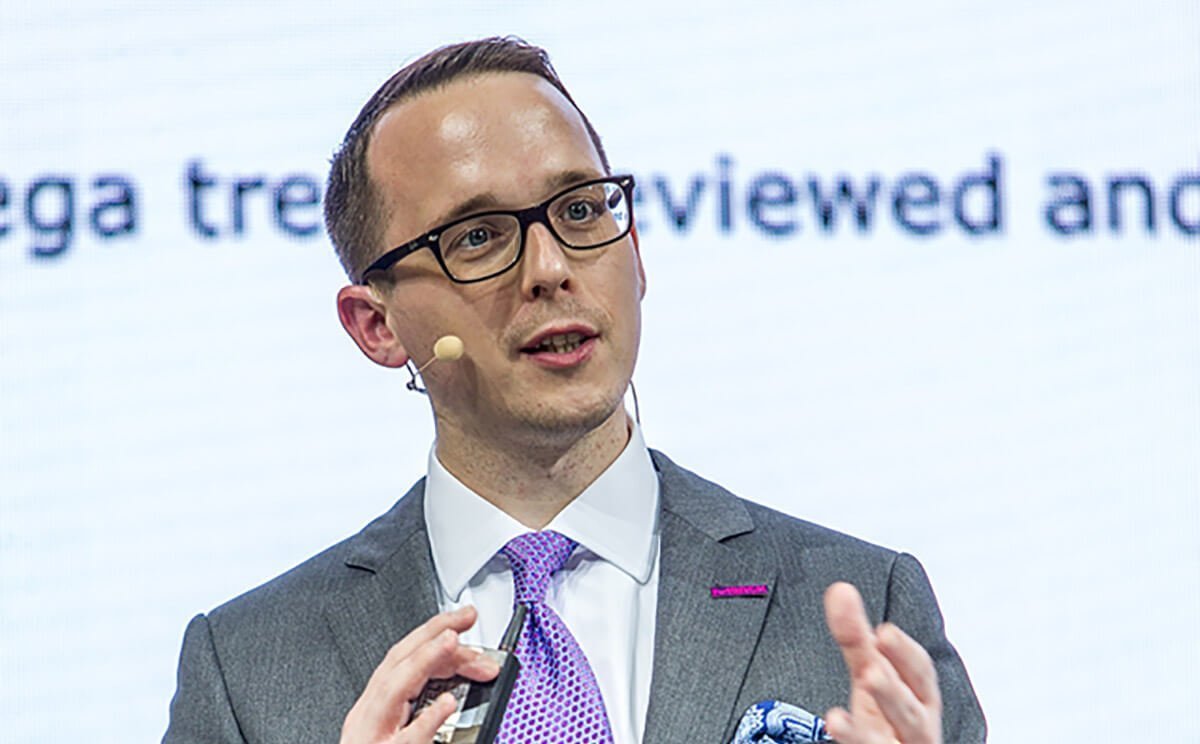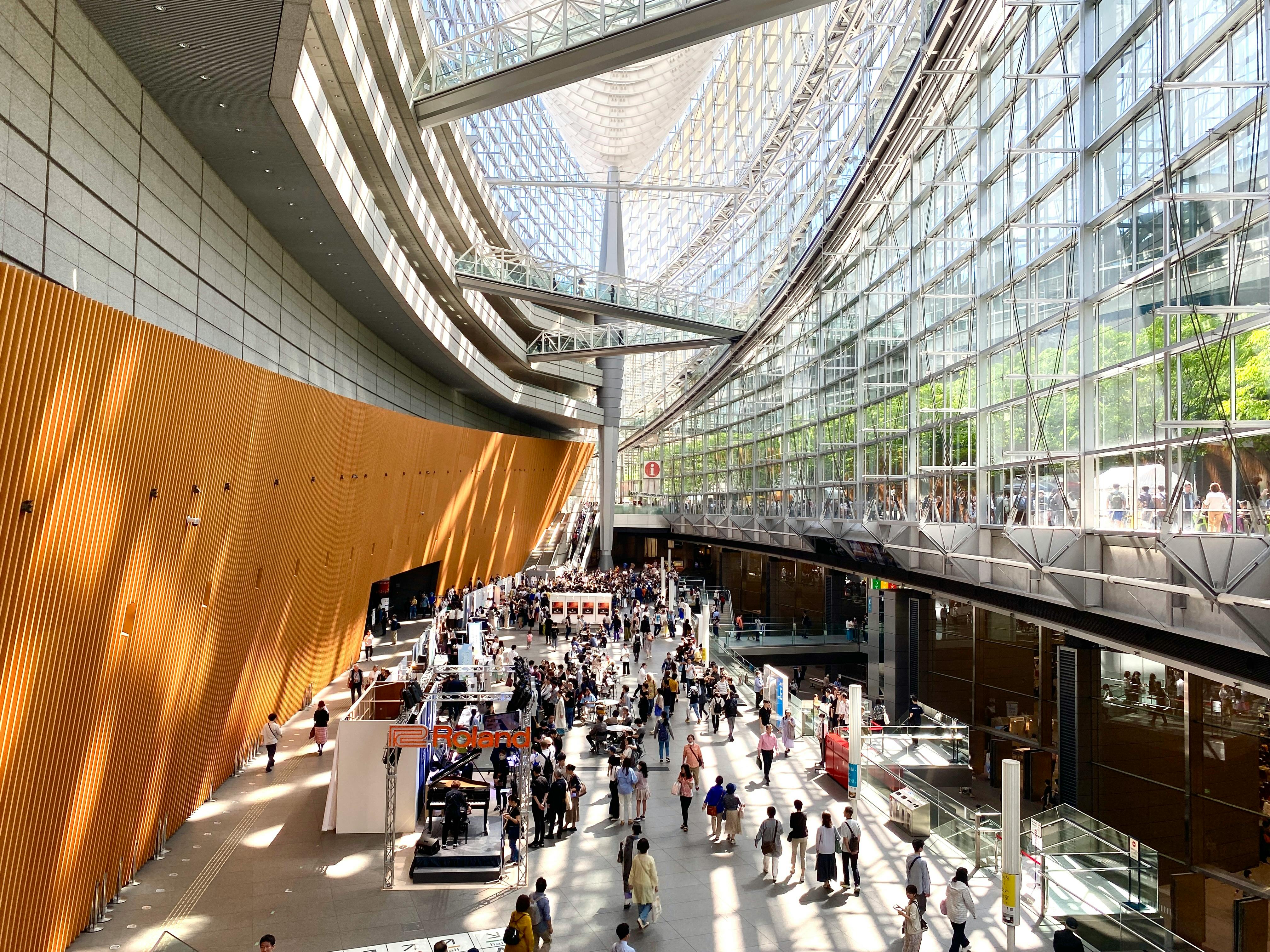Future-Proof Brand Series: Axel Löber, Merck
The role of the brand manager is changing towards one of a brand community or relationship manager

VIM Group
To celebrate this year’s launch of Future-Proof Your Brand, we have taken the time to speak to some of our clients about their experience working with brands in an ever-changing environment.
For our first interview, Cat Wise sat down for a conversation with Axel Löber, Global Head of Corporate Branding & Strategic Communication Projects at Merck.
Axel Löber of Merck
What is your biggest brand management challenge?
Axel Löber: On the one hand, the change from old to new brand identity after the relaunch of Merck’s brand identity in 2015. For a company with 50,000 employees in 66 countries, that’s quite a project. On the other hand, the communicative challenge: Telling the story of the company in a way that the brand strategy, brand idea and everything that we’ve developed comes to life, both internally and externally.
Cat Wise: It’s a lot of history to tell, isn’t it?
AL: We’re a company that will turn 350 in 2018. Obviously a lot of history comes with that. However, we try to find the right balance between past, present and future. It’s more about where we can make a difference as a business today and how we can help our customers and partners tomorrow. That’s one reason why we started our brand campaign #catchcurious last year. In a content marketing approach we are exploring how curiosity leads to innovation, especially in science and technology.
Is brand more important now than ever?
AL: Branding has always been important. The question is: Do companies see their brand as an asset that can help them? If you can answer “yes” to this question, then the topic really opens up. Brand is about identification and differentiation. A clear and distinctive brand is one that is able to tell a story that sticks in your mind and gives a company an advantage in the marketplace.
Which trends are likely to have the largest impact on your brand?
AL: I don’t think it’s a surprise that the biggest challenge at the moment is the digital change – and the cultural change that comes along with it. There’s of course the technology itself: How artificial intelligence and virtual reality could change the whole of our business. And there’s the communicative aspect. We face an increasingly fragmented communication landscape. In the past, you would have a defined, somewhat limited set of the more classical outlets like newspapers or TV. Today, everybody is a news outlet, especially with the use of social media, which gives you an exponentially growing amount of opportunities and awareness – and also higher complexity.
Which brands do you admire or use as inspiration?
AL: I like ‘come back’ brands – those which have struggled in the past and have managed to make a turnaround. For example, I like the work that Jaguar has done. It has not always had the most future-oriented and fresh brand image and has some very strong competition, especially from the German premium car makers – but over the years they have done a smart repositioning in a fierce marketplace.
Where do you see the future of brand management in five years’ time?
AL: I would be cautious with a prediction where brand management will be five years from now. Perhaps that’s basically the answer. Today’s constantly shifting environment requires a lot of flexibility, a lot of adaptability. In an age of democratisation the role of the brand manager is changing towards one of a brand community or relationship manager. One who has conversations with stakeholders and tries to influence brand development instead of just having rules in place and making sure that these rules are applied and adhered to.
Do you have an idea about the future at Merck specifically? There’s already been a huge amount of change over the past four years or so, but what’s next?
AL: As mentioned we have launched a completely new brand identity some two years ago, and we are still in the phase of changing touchpoints, in particular when it comes to our tremendous product portfolio. The biggest next challenge is the transition from ‘rebrand mode’ into ‘normal brand management mode’, which is a step-by-step process with many interdependencies.
CW: It’s like you are parents of a new baby, and as it grows and changes, you have to grow with it as parents.
AL: Yes, that’s a good analogy for it. We are at the nurturing stage. And, of course, we are also still in the transition from the old to the new.
CW: It’s been wonderful to watch the Merck brand grow over the last few years, it’s a bold and exciting brand to work with.
AL: It’s nice to hear that, thank you.
—
Axel Löber is Global Head of Corporate Branding & Strategic Communication Projects at science and technology company Merck.
Related insights
Brand Management
Rebranding
Brand Technology
Markengeflüster: Exchange on Brand Strategies and Challenges
Brand Management
Rebranding
Brand Technology
Markengeflüster: Austausch zu Markenstrategien und Herausforderungen
Brand Management
Rebranding
Brand Technology



